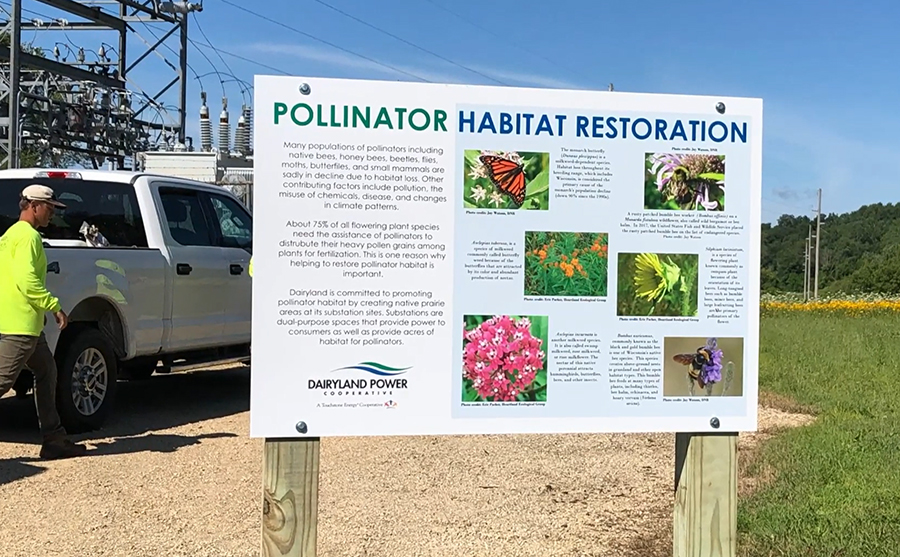
Ever gone to a party with 3 million people?
Well, now you can.
With musical performances, cooking demos and conservation workshops, the online 2021 Pollinator Power Party more than doubled attendance from 2020, its inaugural year when some 1.5 million participants logged on for the virtual festivities.
And electric cooperatives are playing no small part in the event’s success.
“Dairyland Power and Arkansas Electric Cooperative Corp. are two electric co-ops actively participating…and the annual party is now the world’s largest party for pollinators,” said Jessica Fox, senior technical executive at the Electric Power Research Institute.
The gathering got its start when EPRI’s Power-in-Pollinators Initiative joined with the nonprofit Pollinator Partnership to commemorate the 2020 National Pollinator Week. This year’s celebration ran from June 21 to 25, but guests are still trickling in virtually to see the event resources.
NRECA, Dairyland, based in La Crosse, Wisconsin, and AECC, headquartered in Little Rock, were original sponsors of the party and backed its internationally recognized 2020 documentary, Power for Pollinators, which has won a dozen film awards.
This year, Dairyland contributed a 14-minute video showcasing the generation and transmission co-op’s broad conservation activities, which include converting a co-op-owned bluff populated with timber rattlesnakes and invasive plants into pollinator-friendly native prairie.
AECC built and is hosting the party website and running a pollinator social media campaign that has received more than 9,000 engagements to date.
“It is estimated that one in every three bites of food we eat are dependent on pollination and, unfortunately, pollinator species are experiencing grave population declines across the globe,” said Rob Roedel, the G&T’s corporate communications director. “AECC recognizes this great reliance on pollinator and ecological well-being and acknowledges it is everyone’s responsibility to support them.”
Fox said the party just wouldn’t be the same without the focus and expertise of electric co-ops.
“Co-ops are unique in their community engagement and business structure compared to other electric power providers,” she said. “Even large companies can learn a lot from what co-ops are doing for pollinators.”
Cathy Cash is a staff writer for NRECA.